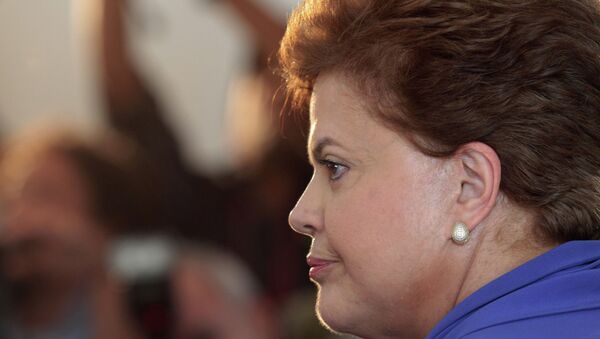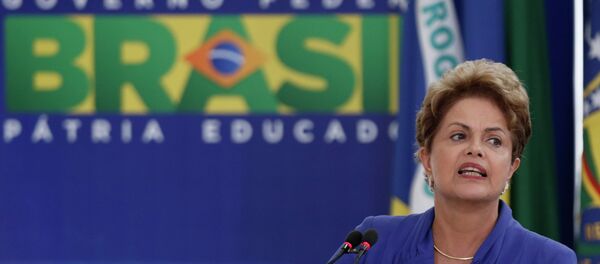In September 2013, media reported about US spying on Rousseff and her Mexican colleague Enrique Peña Nieto.
@Snowden uhhhh that wiretap was legal and done under the auspices of the Brazilian Federal Police who had a warrant.
— marcos j. sahm (@unclesahm) 17 марта 2016 г.
On March 17, 2016 Brazilian and other media outlets reported that President Rousseff’s domestic phone calls had also been tapped.
Brazilian federal judge Sérgio Moro was the first to release a secretly recorded phone conversation between Dilma Rousseff and “Lula,” as the former two-time President is known.
In the tapped phone linkup Dilma Rousseff told “Lula” that she was sending him his ministerial papers “in case of necessity”.
The Brazilian media and opposition interpreted the remarks to mean that she was giving him the papers quickly so that Lula could show them to police to avoid detention as part of the so-called “Carwash” corruption case.
Rousseff's opponents said the call lends support to their allegation that the former president's appointment to the Cabinet post was meant to shield him from a corruption probe.



